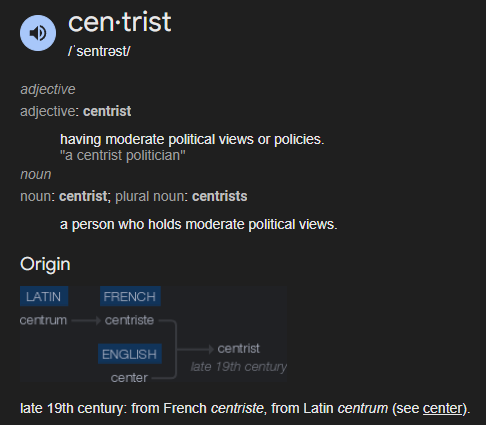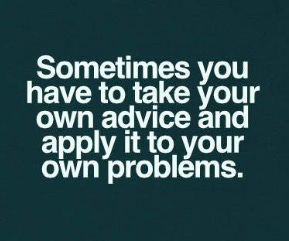A call for the reasonable, centrist residents to start speaking up. Taking my own advice: read past the headline! Get involved: run for a nonpartisan board.
A call for some sanity in this state. A call for the reasonable, centrist residents to start speaking up.
You and I may not agree on everything. I'm fine with this because I would bet you money that no matter where you land on the ideological spectrum for any given issue, on a majority of issues you and I are more alike than different.
Such is the nature of averages: there's a lot more meat in the center of the bell curve than at the wings.
Rachel Gabel's op ed below about a Denver citizen initiative** that would ban slaughterhouses within Denver City limits caught my eye last week.
Think back to a few years back when animal-rights/re-wilding advocates got something on the ballot about reintroducing wolves.
See the similarity here? And by similarity I mean more than just the topical; I mean a similarity in the situation. Both the slaughterhouse initiative and the wolf reintroduction are ballot measures pushed by the wings of the bell curve, the extremists.
The similarity doesn't end there, however. The outcome with the slaughterhouses could be the same; that is, a disengaged majority of centrist residents could find themselves in a situation they don't like after having been outmaneuvered by those same hardcore elements.
Here is the good news. This slaughterhouse initiative is a chance to do better. It's a chance to not fall into the same mistake. I would caution against assuming this will happen automatically. It will only happen if centrist people, people like you and I who may not agree on everything but agree on more than you'd think, speak to each other.
Take a minute from your day and read the op ed. Note things like the following quotes from Gabel's op ed:
"The Regional Economic Development Institute at Colorado State University’s report on the effect of the ballot box ban found the closure of the slaughterhouse [the ONLY such enterprise in the city which happens to process lambs and supplies a large portion of the lamb market int the west] in Denver — Superior Farms — would cause a reduction of $861 million in current economic activity and 2,787 jobs. The best-case scenario of the study assumes 80% of the economic activity lost in the ban somehow remains in state, and still represents a loss of over $215 million in Denver alone."
"The closure of this one business will not improve animal welfare in this state. The closure of animal agriculture in this state will not improve animal welfare in this state."
And the statement from Superior Farms which appears in the Denverite article linked second below:
"Superior Farms spokesperson Roger Sherman said the ban would have a big impact on the region. 'Superior Farms is owned and operated by its employees and has been a part of the local community for more than 70 years, providing jobs and contributing to our local food economy," he said. "Forcing it to shut down would put 170 workers, with good wages and benefits, out of their jobs. This measure is unfair and simply the wrong approach.'"
Having read things like this, start a conversation with a friend who lives in Denver or knows someone who does. Urge them to think through their vote carefully. Urge them to not go down the same road we did with wolves.
**One of two already approved for Denver's ballot, the other one being about banning fur sales and one that's not yet cleared for the ballot about collective bargaining, see the "Citizen-Led Intiatives" tab in the third link below.
https://denvergazette.com/opinion/columns/column-a-misguided-attempt-to-ban-slaughterhouses/article_1e7db7ee-2229-58bf-90a8-3e07e9b5c5bf.html
https://denverite.com/2023/11/28/denver-fur-ban-slaughterhouse-ballot-measures/
https://www.denvergov.org/Government/Agencies-Departments-Offices/Agencies-Departments-Offices-Directory/Clerk-and-Recorder/Elections-Division/Campaign-Hub/Candidate-and-Initiative-Tracking
On the importance of reading past the headlines ...
Sometimes you gotta take your own advice. I believe I've written more than once about reading past the headline.
I say that because you think I'd know better than to react out loud prior to looking into something fully. You'd think that, but you'd be wrong.
I saw the article linked below recently and before I knew it, I was telling someone about the dumb crap in the mountains where not only are they going to start requiring you to purchase carbon indulgences to get a hot tub (see the second link below) now they're going to take your gas grill!
And then I actually, you know, read the article. Turns out, it's not about greenhouse gases and it's not a government-driven effort. The ban on gas grills is for fire danger and it's being driven by insurance companies who either won't insure an HOA that allows gas grills on patios** or will charge an arm and a leg for the privilege.
Okay, so a reminder to me to take my own advice. Remember to read up before you speak up.
**Charcoal and fire pits are already an insurance no-no.
https://www.cbsnews.com/colorado/news/ban-on-gas-grills-colorado-mountain-hoa/
https://coloradosun.com/2023/08/15/mountain-town-greenhouse-gases-hot-tubs-fire-pits-colorado/
How can I get involved? By running for one of the numerous small nonpartisan elections across the state.
You may not be aware of it, but there are numerous small elected boards across the state. Boards that sometimes control millions of dollars. Dollars that someone has to decide where to spend and collect.
If you have felt a pull to get involved in this state, this is a chance. These small elected boards don’t require a ton of money or backing to get elected to (in the case of RTD it’s 125 signatures to get on the ballot), but the potential impact you could have is big.
I got an email from a reader who has made it his project to find and highlight these small elections and has stepped up to help connect those that might be interested.
His current focus right now is RTD because the time is short on that race. If you want to toss your hat into the ring for the RTD board, you’ll need to start soon.
If you read the email below and are interested in participating, email me here and/or put a message up and I’ll connect you.
If RTD is not your thing but you are interested in a school board or similar election, stay tuned. This reader has said that he will try to follow other boards and do updates for them (which I promised to share).
Email follows.
I am working on a project to identify relevant non-partisan elections (city councils, fire districts, water boards, etc.). This project has multiple purposes. First, to analyze the nomination process of each district and timely inform voters of the process so that those who wish to do so may become a candidate for the respective board in their area. Later, after the individuals qualify for the respective elections, I will discuss the ideology of all candidates so that voters may make a more informed choice as to who will represent them on those various boards. Finally, I will give advance notice of the dates of the elections of those nonpartisan districts which are conducted very quietly.
The budgets of many the nonpartisan entities are large and provide important services such as education, fire protection, clean water and sewage treatment. Most voters do not realize the amount of their tax dollars that go to “special districts” where the elections are labeled nonpartisan. An analysis of my own property tax bill showed that 50% of my Property Taxes went to the School District (nonpartisan elections) and 20% of my Property Taxes went to the Fire District (nonpartisan elections). A total of 70% of my property tax money went to so called non-partisan districts.
The budgets of these special districts are significant and deserve the attention this project is giving them. Members of the boards of these special districts receive valuable experience such as analyzing budgets and making policy decisions. The individuals running for these non-partisan offices are the “bench” for the republican and democratic parties. Many of the candidates that are successful on these board will move on to higher offices.
These nonpartisan elections occur in either even or odd years and they occur either in the Spring or in November of the year. Consequently, the nonpartisan elections are broken up into four different groups.
The first non-partisan district I would like to discuss is the RTD.
For 2024 The RTD Board will manage a projected revenues of $1.2 BILLION of which 75% ($932 million) will come from Sales Taxes paid by us the tax payers while ONLY 5% ($63 million) comes from fares of those who actually ride the RTD.
The RTD is governed by a 15-member, publicly elected Board of Directors. Directors are elected to a four-year term and represent a specific district. On November 5, 2024, the general election will see RTD Directors elected from the following eight Director Districts: A, D, E, F, G, H, I, M.
The four steps to become an RTD candidate are:
*First determine which RTD district you live in.
*Next, one must electronically submit a Candidate Affidavit.
*Apply for a Petition.
*Before July11th get over 250 valid signatures.
The process required to become a candidate for the RTD Board is very detailed. I have documented this process so that one can complete it quickly.





